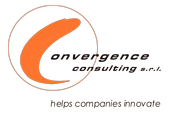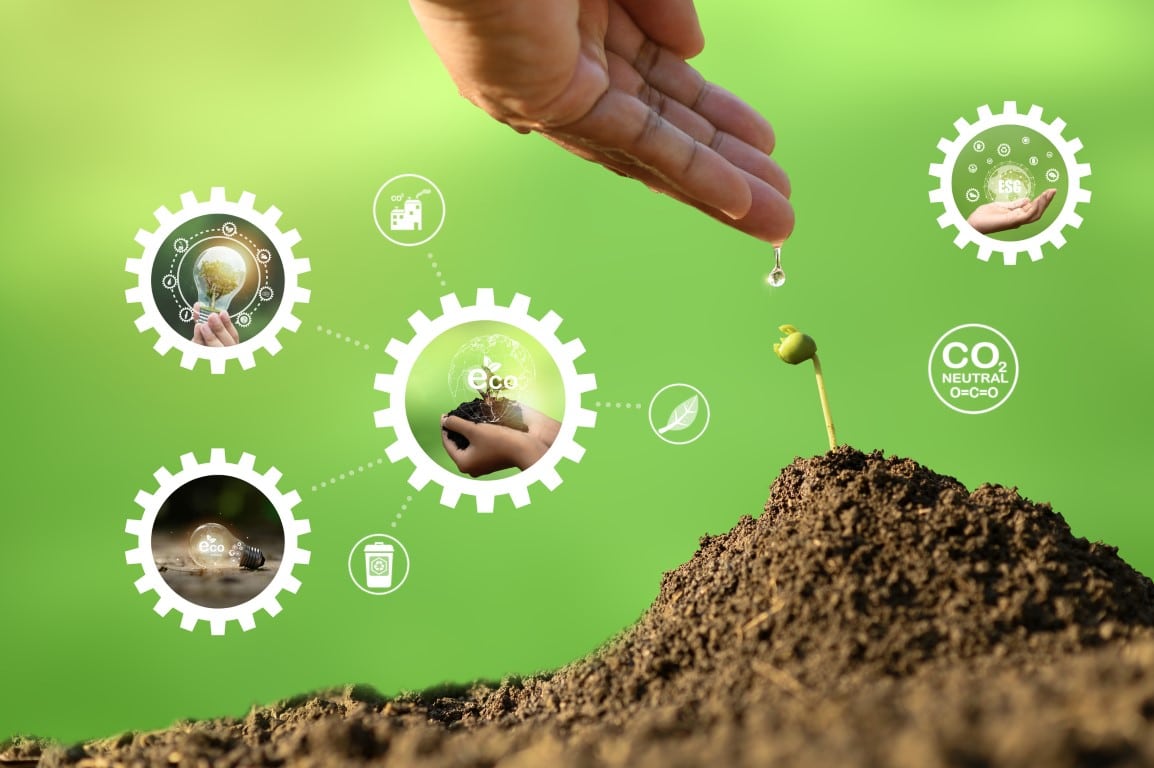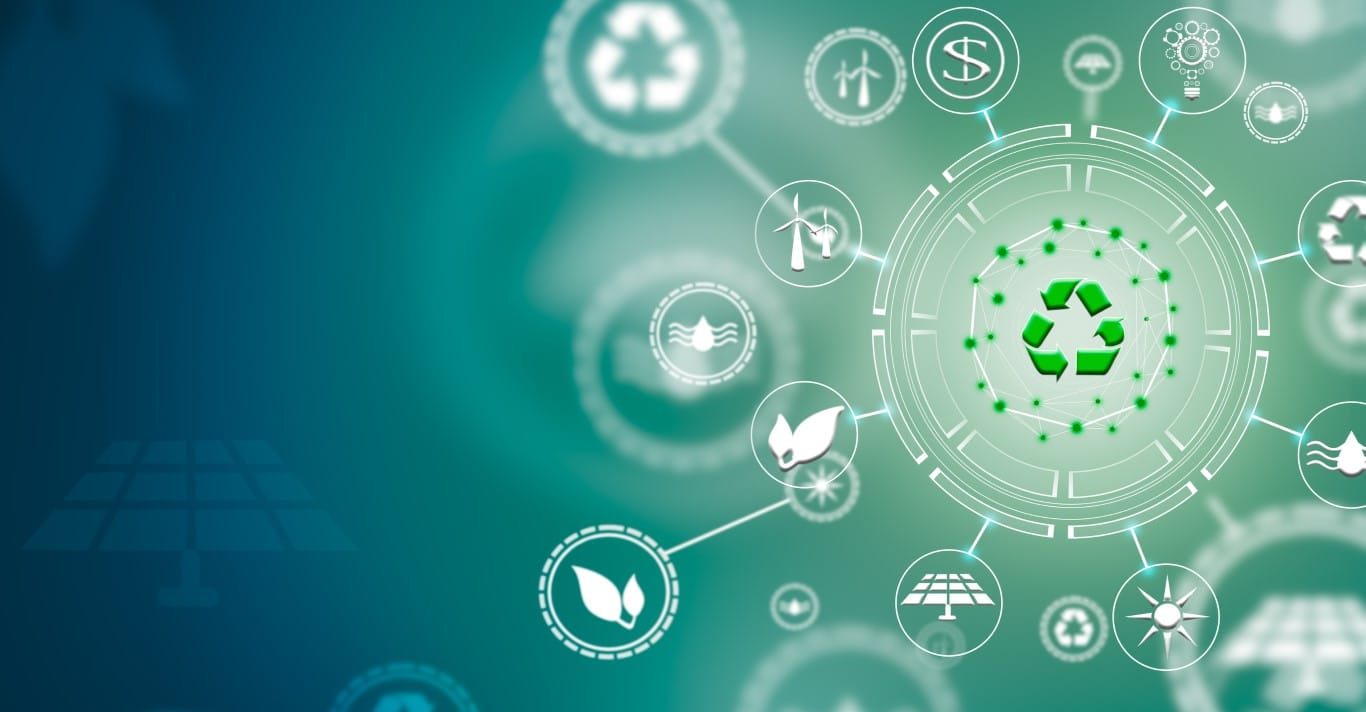Design for Sustainability (DfS) and Sustainable Product Development
At Convergence Consulting, we are committed to Design for Sustainability (DfS) and offer specialized services in developing sustainable products for Packaging Automation, Wrapping Machinery, and Biomedical Disposables and Equipment. Our menu provides comprehensive information about DfS, our services, our approach to sustainability, and real-life case studies showcasing our success.
By choosing Convergence Consulting, you’re partnering with a team dedicated to creating a sustainable future through innovative product development.
By partnering with us, you can access our extensive knowledge and experience in Convergence Consulting Design for Sustainability, specifically in sustainable product development. We provide comprehensive consultation, from concept ideation and design to prototyping and production, ensuring that your sustainable solutions align with your specific requirements. Our team is dedicated to staying up-to-date with the latest advancements in technology and sustainable practices, enabling us to deliver cutting-edge solutions that drive positive change and contribute to a more sustainable future.
Sustainable product development services
In today’s world, where sustainability and environmental consciousness are increasingly important, Convergence Consulting Services is at the forefront of providing innovative and eco-friendly solutions for sustainable product development.
With a focus on three key areas :
- Packaging Automation,
- Wrapping Machinery,
- Biomedical Disposable
Our team of experts combines cutting-edge technology, industry knowledge, and a commitment to environmental stewardship to deliver sustainable solutions that drive positive change. Let’s delve into each of these areas to explore the sustainable product development services offered by Convergence Consulting.
- Packaging Automation: Sustainable Solutions for Packaging Machinery
Packaging Automation plays a pivotal role in streamlining processes and improving efficiency. At Convergence Consulting, we offer sustainable solutions for packaging machinery that optimize productivity and minimize environmental impact. Our expert engineers work closely with clients to design and develop automated packaging systems prioritizing sustainability. By integrating energy-efficient components, utilizing recyclable materials, and minimizing waste generation, we ensure that our packaging automation solutions align with your sustainability goals while maintaining optimal performance.
- Wrapping Machinery: Eco-Friendly Options for Wrapping Equipment
Wrapping machinery is essential for various industries, including food and beverage, logistics, and manufacturing. Convergence Consulting recognizes the need for eco-friendly alternatives in this field and offers sustainable options for wrapping equipment. We incorporate innovative features such as energy-efficient motors, intelligent controls, and recyclable or biodegradable wrapping materials.
- Biomedical Disposable: Sustainable Product Development for Healthcare
Convergence Consulting understands the challenges faced by the healthcare industry and provides sustainable product development services for biomedical disposables. Our team works closely with medical professionals and engineers to create environmentally conscious alternatives to single-use medical devices and consumables. We help healthcare providers transition to sustainable practices without compromising patient care.
Design for Sustainability (DfS): Understanding the concept
This Design for Sustainability (DfS) section explores the importance and principles of designing for a sustainable future. It combines innovative design thinking with a focus on environmental, social, and economic considerations. In this section, we will delve into the concept of Design for Sustainability and its significance in creating a sustainable future.
What is Design for Sustainability?
Design for Sustainability (DfS) is a holistic approach that integrates sustainable principles into the design process. It involves considering the entire lifecycle of a product, from its creation to its disposal, with the aim of minimizing environmental impact and maximizing positive social outcomes. DfS emphasizes the need to find innovative solutions that meet the present conditions and account for future generations’ needs.
Importance of DfS in creating a sustainable future:
- Environmental Stewardship: Design for Sustainability is crucial in mitigating the environmental impact of products and services. By considering factors such as energy consumption, material selection, waste reduction, and carbon footprint, DfS promotes responsible resource management and helps reduce environmental degradation.
- Social Responsibility: DfS recognizes the importance of social well-being and equity. It strives to create products and services that improve the quality of life for all individuals while ensuring fair labor practices, safe working conditions, and respect for human rights throughout the supply chain. By incorporating social considerations, DfS fosters a more inclusive and just society.
- Economic Viability: Design for Sustainability goes hand in hand with economic viability. By adopting sustainable practices, businesses can reduce costs associated with resource depletion, waste management, and regulatory compliance. Additionally, DfS encourages the development of innovative products and services that cater to the growing demand for sustainable solutions, leading to long-term business success.
Fundamental Principles of Design for Sustainability:
- Life Cycle Thinking: DfS considers the entire life cycle of a product, including raw material extraction, manufacturing, distribution, use, and end-of-life disposal. By assessing the environmental and social impacts at each stage, designers can identify opportunities for improvement and make informed decisions to minimize the overall environmental footprint.
- Systems Thinking: DfS takes a systemic approach, recognizing the interconnectedness of various components within a larger context. It considers the interactions between products, users, ecosystems, and society, aiming to design solutions that optimize the overall system’s sustainability.
- Biomimicry: Nature serves as an inspiration for sustainable design solutions. By emulating nature’s patterns, processes, and strategies, designers can create efficient, resilient, and well-adapted products for their environment. Biomimicry offers a wealth of knowledge to enhance sustainability in diverse fields.
- User-Centered Design: DfS emphasizes understanding and meeting users’ needs while considering their behavior, preferences, and cultural contexts. By involving users in the design process and incorporating their feedback, sustainable products and services can better align with user values and lead to higher adoption rates.
In Conclusion, Design for Sustainability is a transformative approach that aims to shape a sustainable future through responsible design practices. By considering the environmental, social, and economic dimensions, DfS enables the creation of products and services that minimize environmental impact, enhance social well-being, and drive economic growth. By embracing the principles of Design for Sustainability, we can collectively work toward a more sustainable and inclusive world.
Our Approach: How we can implement Design for Sustainability
a) Integrating sustainability into product design and development:
Convergence Consulting can work with clients to incorporate sustainability principles into their product design and development processes. This involves considering the environmental and social impacts of products throughout their lifecycle. They can help identify areas where sustainable practices can be implemented, such as using eco-friendly materials, optimizing energy efficiency, reducing waste, and designing for recyclability or reuse.
b) Life Cycle Assessment (LCA) for environmental impact analysis:
Convergence Consulting can conduct Life Cycle Assessments (LCAs) to evaluate the environmental impacts of products or processes. An LCA assesses the entire life cycle of a product, from raw material extraction and manufacturing to use, disposal, and potential recycling or reuse. By quantifying the environmental impacts, Convergence Consulting can help clients identify areas for improvement and make informed decisions to reduce their ecological footprint.
c) Material selection and waste reduction strategies:
Convergence Consulting can assist in selecting sustainable materials and implementing waste reduction strategies. They can analyze the environmental impact of different materials and help clients choose alternatives with lower carbon emissions, reduced toxicity, and higher recyclability. Additionally, they can recommend strategies to minimize waste generation during production, packaging, and distribution, such as lean manufacturing principles, recycling programs, or designing for disassembly.
d) Renewable energy integration and energy-efficient solutions:
Convergence Consulting can support clients in integrating renewable energy sources and implementing energy-efficient solutions. They can assess the feasibility and benefits of incorporating renewable energy technologies like solar, wind, or geothermal power into the client’s operations. Furthermore, they can identify opportunities for energy efficiency improvements, such as upgrading equipment, optimizing processes, implementing intelligent systems, or recommending energy management practices.
By implementing these strategies, Convergence Consulting helps clients achieve sustainable design and development practices, reducing their environmental impact and contributing to a more sustainable future.
Case Studies: Success Stories of sustainable product development
Case Study 1: Success Story of Sustainable Product Development in Packaging Automation Projects
In packaging automation, sustainable product development has become crucial for companies aiming to reduce their environmental impact. This case study explores a sustainable product development success story in a packaging automation project.
Case Study: XYZ Packaging Solutions
Background:
XYZ Packaging Solutions is a leading company specializing in packaging automation. They recognized the need for sustainable solutions to meet the increasing demand for eco-friendly packaging. They aimed to develop a packaging system that minimized waste, reduced energy consumption, and utilized recyclable materials.
Innovation and Features:
Waste Reduction: XYZ Packaging Solutions developed a cutting-edge system that optimized packaging material usage. Incorporating advanced algorithms and sensor technologies minimizes material waste during packaging.
- Energy Efficiency: The company focused on energy-saving measures by implementing intelligent automation techniques. Their machinery incorporated energy-efficient components, such as high-efficiency motors and intelligent power management systems, which reduced energy consumption by up to 30%.
- Recyclable Materials: XYZ Packaging Solutions worked closely with material suppliers to identify sustainable alternatives. They developed packaging materials made from recyclable or biodegradable sources, ensuring the packaging could be easily recycled or safely decomposed.
- Supply Chain Optimization: XYZ Packaging Solutions developed a software platform allowing real-time packaging materials tracking and optimized supply chain management to enhance sustainability further. This reduced transportation emissions and ensured the timely delivery of materials.
Benefits and Impact:
- Environmental Impact: The sustainable packaging automation system developed by XYZ Packaging Solutions significantly reduced waste generation and carbon footprint. Using recyclable materials helped divert waste from landfills and reduced the consumption of non-renewable resources.
- Cost Savings: The optimized material usage and energy efficiency measures resulted in substantial customer cost savings. By minimizing waste and energy consumption, companies using XYZ Packaging Solutions’ system could achieve lower operational costs.
- Brand Reputation: Implementing sustainable packaging solutions enhanced XYZ Packaging Solutions’ and its customers’ brand reputation. Consumers increasingly prefer products packaged in eco-friendly materials, thereby increasing customer loyalty and market competitiveness.
In Conclusion, XYZ Packaging Solutions’ success in sustainable product development for packaging automation projects showcases the positive impact of integrating environmentally friendly practices into the packaging industry. Their innovative approach reduced waste and energy consumption resulting in cost savings and improved brand reputation. This case study demonstrates the potential for sustainable packaging solutions to drive positive change within the industry.
Case Study 2) Wrapping machinery innovations
Case Study 2a): Reusable Packaging Solutions
One success story in sustainable product development in wrapping machinery innovations is the development of reusable packaging solutions. Traditionally, wrapping machinery was designed for single-use plastic films discarded after use, contributing to environmental pollution. However, an innovative company recognized this issue and developed a wrapping machinery system that utilizes reusable and recyclable packaging materials.
The system incorporates various sustainable materials, such as biodegradable films, compostable bags, and reusable stretch wraps. These materials are designed to withstand multiple uses, reducing the overall waste generated. The wrapping machinery is also equipped with advanced technology that optimizes the usage of these materials, minimizing waste and maximizing efficiency.
The adoption of this sustainable wrapping machinery system has resulted in several benefits. Firstly, it has reduced the consumption of single-use plastics, contributing to the reduction of plastic waste. Secondly, it has decreased the carbon footprint associated with packaging and improved the overall efficiency of packaging processes.
Case Study 2b): Energy-Efficient Wrapping Machinery
Another success story lies in the development of energy-efficient wrapping machinery. Traditional wrapping machines often consume large amounts of energy during operation, contributing to environmental concerns. In response, companies have developed innovative wrapping machinery that incorporates energy-saving technologies.
These energy-efficient wrapping machines are designed to minimize energy consumption without compromising performance. They utilize advanced sensors and automation systems to optimize energy usage during different stages of the wrapping process. For instance, the machines can adjust the heat settings and speed based on the specific requirements of the wrapped product, thus reducing energy wastage.
Adopting energy-efficient wrapping machinery has led to notable environmental and economic benefits. By reducing energy consumption, companies have reduced their carbon emissions and decreased their overall ecological impact. Furthermore, the energy savings have translated into cost savings for businesses, improving their profitability.
Case Study 2c) Integration of IoT and Wrapping Machinery
Integrating the Internet of Things (IoT) technology with wrapping machinery has also succeeded in sustainable product development. IoT-enabled wrapping machinery allows for real-time monitoring and control of the packaging processes, optimizing resource utilization and reducing waste.
By equipping wrapping machinery with sensors and connectivity features, companies can gather data on various parameters such as film usage, machine performance, and product dimensions. This data can be analyzed to identify areas of improvement and make data-driven decisions to enhance sustainability. For example, the machinery can automatically adjust the amount of film used based on the size of the product, minimizing material waste.
Integrating IoT technology has improved efficiency, reduced waste, and enhanced sustainability in the packaging industry. By leveraging real-time data and automation, companies can streamline operations, optimize resource consumption, and minimize their environmental footprint.
In conclusion, sustainable product development in wrapping machinery innovations has led to significant success stories. Reusable packaging solutions, energy-efficient machinery, and the integration of IoT technology are just a few examples of how companies have embraced sustainability to reduce waste, energy consumption, and environmental impact. These case studies demonstrate the potential for combining innovation and sustainability to create a more environmentally friendly packaging industry.
Case Study 3: Success Story of Biomedical Disposable Solutions
Biomedical disposable solutions play a vital role in healthcare but often generate significant waste. This case study explores a triumphant story of sustainable product development in disposable biomedical solutions.
Case Study: ABC Medical Technologies
Background:
ABC Medical Technologies is a company focused on developing innovative solutions for the healthcare industry. They recognized the need to address the environmental impact of disposable biomedical products and aimed to create sustainable alternatives without compromising safety or performance.
Innovation and Features:
Material Selection: “ABC Medical Technologies” collaborated with material scientists to identify eco-friendly materials suitable for biomedical applications. They prioritized materials that were biodegradable, compostable, or made from renewable resources, ensuring they met stringent quality and safety standards.
- Product Design: The company redesigned its disposable products to minimize material usage and waste generation. They optimized the products’ shape, size, and structure to reduce the required material volume while maintaining functionality and performance.
- Recycling Programs: “ABC Medical Technologies” partnered with recycling organizations to ensure proper disposal and recycling of their products. They provided collection bins in healthcare facilities and implemented efficient recycling processes to minimize the environmental impact of their products at the end of their lifecycle.
- Education and Awareness: The company conducted training programs and educational campaigns to raise awareness among healthcare professionals about the importance of sustainable practices. They highlighted the environmental benefits of using their eco-friendly disposable solutions and provided resources for proper disposal.
Benefits and Impact:
- Waste Reduction: The sustainable disposable solutions developed by ABC Medical Technologies significantly reduced the volume of waste generated in healthcare settings. Using biodegradable or compostable materials ensured that the products could safely decompose without causing harm to the environment.
- Resource Conservation: By utilizing renewable resources in their products, ABC Medical Technologies helped reduce the reliance on non-renewable materials. This conservation of resources contributed to a more sustainable and resilient healthcare system.
- Regulatory Compliance: The company’s sustainable disposable solutions complied with stringent regulatory requirements for safety and performance. They demonstrated that it was possible to develop eco-friendly alternatives without compromising quality or patient care.
- Industry Leadership: ABC Medical Technologies’ commitment to sustainable product development established them as a leader in the field. Their innovative approach to biomedical disposables set an example for other companies and encouraged adopting more sustainable practices across the healthcare industry.
In conclusion, ABC Medical Technologies’ success in developing sustainable biomedical disposable solutions showcases the positive impact of integrating eco-friendly practices into the healthcare sector. They significantly reduced waste generation and resource consumption by prioritizing material selection, product design optimization, recycling programs, and education. This case study highlights the potential for sustainable product development to drive positive change in the biomedical industry and improve environmental sustainability.
CONCLUSION
Design for Sustainability (DfS) is an essential practice for companies looking to reduce their environmental impact and conserve resources. At Convergence Consulting, we are committed to Design for Sustainability (DfS) and offer specialized services in developing sustainable products.
Convergence Consulting is a leading consulting firm specializing in sustainability and has developed a range of services to help companies adopt this practice. Through partnerships with leading companies in the food packaging and electronics industries, Convergence Consulting has demonstrated the value of Design for Sustainability and its positive impact on the environment and business performance. As the world continues to focus on sustainability, sustainable product development, and design for recycling, the use of biomaterial will become even more critical, and companies that adopt this practice will be well-positioned to succeed.




